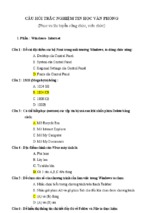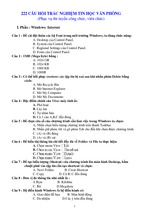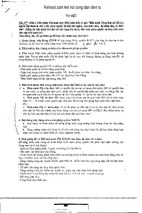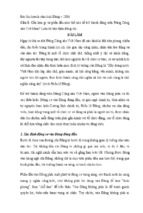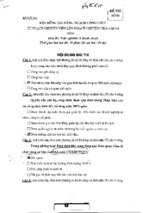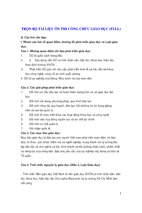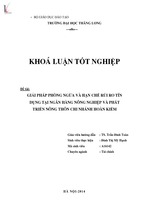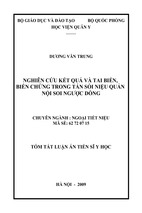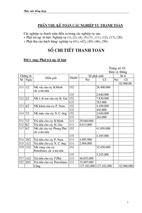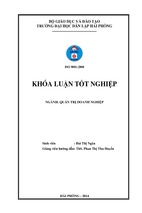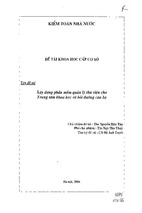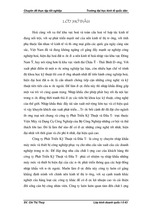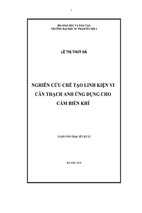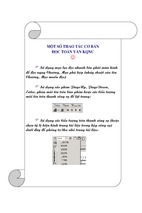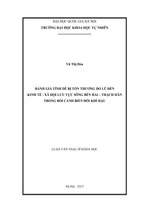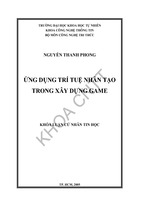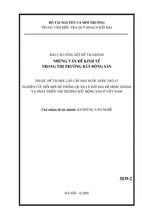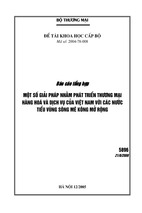®
MCAT Critical Analysis and
Reasoning Skills Review
Edited by Alexander Stone Macnow, MD
Table of Contents
1. MCAT® Critical Analysis and Reasoning Skills Review
1. Cover
1. Title Page
2. Table of Contents
3. The Kaplan MCAT Review Team
4. About the MCAT
5. How This Book Was Created
6. Using This Book
2. Chapter 1: About CARS
1. About CARS
2. Introduction
3. 1.1 The CARS Section
4. 1.2 Passages
5. 1.3 Question Categories
6. Conclusion
7. Concept and Strategy Summary
3. Chapter 2: Analyzing Rhetoric
1. Analyzing Rhetoric
2. Introduction
3. 2.1 What Is Rhetoric?
4. 2.2 Key Components of Rhetoric
5. 2.3 Rhetorical Analysis
6. Conclusion
7. Concept and Strategy Summary
4. Chapter 3: Keywords
1. Keywords
2. Introduction
3. 3.1 Reading Strategically with Keywords
4. 3.2 Relation Keywords
5.
6.
7.
8.
5. 3.3 Author Keywords
6. 3.4 Logic Keywords
7. Conclusion
8. Concept and Strategy Summary
Chapter 4: Outlining the Passage
1. Outlining the Passage
2. Introduction
3. 4.1 The Kaplan Method for CARS Passages
4. 4.2 Reverse-Engineering the Author’s Outline
5. 4.3 Practicing the Strategy
6. Conclusion
7. Concept and Strategy Summary
Chapter 5: Dissecting Arguments
1. Dissecting Arguments
2. Introduction
3. 5.1 Domains of Discourse
4. 5.2 Concepts: The Basic Elements of Logic
5. 5.3 Claims: The Bearers of Truth Value
6. 5.4 Arguments: Conclusions and Evidence
7. Conclusion
8. Concept and Strategy Summary
Chapter 6: Formal Logic
1. Formal Logic
2. Introduction
3. 6.1 The Logic of Conditionals
4. 6.2 Applications of Conditionals
5. 6.3 Analogical Reasoning
6. Conclusion
7. Concept and Strategy Summary
Chapter 7: Understanding Passages
1. Understanding Passages
2. Introduction
3. 7.1 Varieties of Passages
4. 7.2 Support in Passages
9.
10.
11.
12.
5. 7.3 Anticipating Questions
6. Conclusion
7. Concept and Strategy Summary
Chapter 8: Question and Answer Strategy
1. Question and Answer Strategy
2. Introduction
3. 8.1 Kaplan Method for CARS Questions
4. 8.2 Wrong Answer Pathologies
5. 8.3 Signs of a Healthy Answer
6. Conclusion
7. Concept and Strategy Summary
Chapter 9: Question Types I: Foundations of Comprehension
Questions
1. Question Types I: Foundations of Comprehension
Questions
2. Introduction
3. 9.1 Main Idea Questions
4. 9.2 Detail Questions
5. 9.3 Function Questions
6. 9.4 Definition-in-Context Questions
7. Conclusion
8. Concept and Strategy Summary
Chapter 10: Question Types II: Reasoning Within the Text
Questions
1. Question Types II: Reasoning Within the Text Questions
2. Introduction
3. 10.1 Inference Questions
4. 10.2 Strengthen–Weaken (Within the Passage) Questions
5. 10.3 Other Reasoning Within the Text Questions
6. Conclusion
7. Concept and Strategy Summary
Chapter 11: Question Types III: Reasoning Beyond the Text
Questions
1. Question Types III: Reasoning Beyond the Text Questions
2. Introduction
3. 11.1 Apply Questions
4. 11.2 Strengthen–Weaken (Beyond the Passage) Questions
5. 11.3 Other Reasoning Beyond the Text Questions
6. Conclusion
7. Concept and Strategy Summary
13. Chapter 12: Effective Review of CARS
1. Effective Review of CARS
2. Introduction
3. 12.1 Learning from Your Mistakes
4. 12.2 Thinking Like the Testmaker: Post-Phrasing
5. 12.3 Improving Your Timing
6. 12.4 Building Endurance
7. 12.5 Enhancing Your Vocabulary
8. Conclusion
9. Concept and Strategy Summary
14. About This Book
1. Copyright Information
2. Special Offer for Kaplan Students
The Kaplan MCAT Review Team
Alexander Stone Macnow, MD
Editor-in-Chief
M. Dominic Eggert
Kaplan MCAT Faculty
Kimberly Sinnott, MA
Kaplan MCAT Faculty
MCAT faculty reviewers Elmar R. Aliyev; James Burns; Jonathan
Cornfield; Alisha Maureen Crowley; Nikolai Dorofeev, MD; Benjamin
Downer, MS; Colin Doyle; Marilyn Engle; Eleni M. Eren; Raef Ali Fadel;
Tyra Hall-Pogar, PhD; Scott Huff; Samer T. Ismail; Elizabeth A. Kudlaty;
Kelly Kyker-Snowman, MS; Ningfei Li; John P. Mahon; Matthew A.
Meier; Nainika Nanda; Caroline Nkemdilim Opene; Kaitlyn E. Prenger;
Uneeb Qureshi; Derek Rusnak, MA; Kristen L. Russell, ME; Bela G.
Starkman, PhD; Michael Paul Tomani, MS; Nicholas M. White; Kerranna
Williamson, MBA; Allison Ann Wilkes, MS; and Tony Yu
Thanks to Kim Bowers; Tim Eich; Samantha Fallon; Owen Farcy; Dan
Frey; Robin Garmise; Rita Garthaffner; Joanna Graham; Adam Grey;
Allison Harm; Beth Hoffberg; Aaron Lemon-Strauss; Keith Lubeley;
Diane McGarvey; Petros Minasi; John Polstein; Deeangelee PooranKublall, MD, MPH; Rochelle Rothstein, MD; Larry Rudman; Sylvia
Tidwell Scheuring; Carly Schnur; Karin Tucker; Lee Weiss; and the
countless others who made this project possible.
About the MCAT
The structure of the four sections of the MCAT is shown below.
Chemical and Physical Foundations of Biological Systems
Time
Format
95 minutes
59 questions
10 passages
44 questions are passage-based, and 15 are discrete (stand-alone)
questions.
Score between 118 and 132
What It
Biochemistry: 25%
Tests
Biology: 5%
General Chemistry: 30%
Organic Chemistry: 15%
Physics: 25%
Critical Analysis and Reasoning Skills (CARS)
Time
Format
90 minutes
53 questions
9 passages
All questions are passage-based. There are no discrete (stand-alone)
questions.
Score between 118 and 132
What It
Disciplines:
Humanities: 50%
Tests
Social Sciences: 50%
Skills:
Foundations of Comprehension: 30%
Reasoning Within the Text: 30%
Reasoning Beyond the Text: 40%
Biological and Biochemical Foundations of Living Systems
Time
Format
95 minutes
59 questions
10 passages
44 questions are passage-based, and 15 are discrete (stand-alone)
questions.
Score between 118 and 132
What It
Biochemistry: 25%
Tests
Biology: 65%
General Chemistry: 5%
Organic Chemistry: 5%
Psychological, Social, and Biological Foundations of Behavior
Time
Format
95 minutes
59 questions
10 passages
44 questions are passage-based, and 15 are discrete (stand-alone)
questions.
Score between 118 and 132
What It
Biology: 5%
Tests
Psychology: 65%
Sociology: 30%
Total
Testing
375 minutes (6 hours, 15 minutes)
Time
Questions
230
Score
472 to 528
The MCAT also tests four Scientific Inquiry and Reasoning Skills (SIRS):
1. Knowledge of Scientific Concepts and Principles (35% of
questions)
2. Scientific Reasoning and Problem-Solving (45% of questions)
3. Reasoning About the Design and Execution of Research (10% of
questions)
4. Data-Based and Statistical Reasoning (10% of questions)
The MCAT is a computer-based test (CBT) and is offered at Prometric
centers during almost every month of the year. There are optional breaks
between each section, and there is a lunch break between the second and
third section of the exam.
Register online for the MCAT at www.aamc.org/mcat
.
For further questions, contact the MCAT team at the Association of
American Medical Colleges:
MCAT Resource Center
Association of American Medical Colleges
(202) 828-0690
www.aamc.org/mcat
[email protected]
How This Book Was Created
The Kaplan MCAT Review project began in November 2012 shortly after
the release of the Preview Guide for the MCAT 2015 Exam, 2nd edition.
Through thorough analysis by our staff psychometricians, we were able to
analyze the relative yield of the different topics on the MCAT, and we
began constructing tables of contents for the books of the Kaplan MCAT
Review series.
Writing of the books began in April 2013. A dedicated staff of 19 writers,
7 editors, and 32 proofreaders worked over 5000 combined hours to
produce these books. The format of the books was heavily influenced by
weekly meetings with Kaplan’s learning-science team.
These books were submitted for publication in July 2014. For any
updates after this date, please visit www.kaplanmcat.com .
The information presented in these books covers everything listed on the
official MCAT content lists—nothing more, nothing less. Every topic in
these lists is covered in the same level of detail as is common to the
undergraduate and postbaccalaureate classes that are considered
prerequisites for the MCAT. Note that your premedical classes may cover
topics not discussed in these books, or they may go into more depth than
these books do. Additional exposure to science content is never a bad
thing, but recognize that all of the content knowledge you are expected to
have walking in on Test Day is covered in these books.
If you have any questions about the content presented here, email
[email protected] . For other questions not related to
content, email
[email protected] .
Each book has been vetted through at least six rounds of review. To that
end, the information presented is these books is true and accurate to the
best of our knowledge. Still, your feedback helps us improve our prep
materials. Please notify us of any inaccuracies or errors in the books by
sending an email to
[email protected] .
Using This Book
Kaplan MCAT Critical Analysis and Reasoning Skills Review, along with
the other six books in the Kaplan MCAT Review series, brings the Kaplan
classroom experience to you—right in your home, at your convenience.
This book offers the same Kaplan content review, strategies, and practice
that make Kaplan the #1 choice for MCAT prep. After all, twice as many
doctors prepared with Kaplan for the MCAT than with any other course.
This book is designed to help you review the Critical Analysis and
Reasoning Skills section of the MCAT. It represents one of the content
review resources available to you. Additional review is available in your
Online Center, including more practice questions and full-length practice
exams. Register for your Online Center at kaptest.com/booksonline .
Unlike the other books in this MCAT series, there is no content to review
for the Critical Analysis and Reasoning Skills section. The questions are
written in such a way that they do not presume any prior fund of
knowledge. In other words, all the support that is needed to answer the
questions correctly is found in the corresponding passages.
SIDEBARS
The following is a guide to the five types of sidebars you’ll find in Kaplan
MCAT Critical Analysis and Reasoning Skills Review:
Bridge: These sidebars create connections between science topics
that appear in multiple chapters throughout the Kaplan MCAT Review
series.
Key Concept: These sidebars draw attention to the most important
takeaways in a given topic, and they sometimes offer synopses or
overviews of complex information. If you understand nothing else,
make sure you grasp the Key Concepts for any given subject.
MCAT Expertise: These sidebars point out how information may be
tested on the MCAT or offer key strategy points and test-taking tips
that you should apply on Test Day.
Real World: These sidebars illustrate how a concept in the text
relates to the practice of medicine or the world at large. While this is
not information you need to know for Test Day, many of the topics in
Real World sidebars are excellent examples of how a concept may
appear in a passage or question on the MCAT.
In this end, this is your book, so write in the margins, draw diagrams,
highlight the key points—do whatever is necessary to help you get that
higher score. We look forward to working with you as you achieve your
dreams and become the doctor you deserve to be!
In This Chapter
1.1
1.2
1.3
The CARS Section
Passages
Question Categories
Foundations of Comprehension
Reasoning Within the Text
Reasoning Beyond the Text
Concept and Strategy Summary

